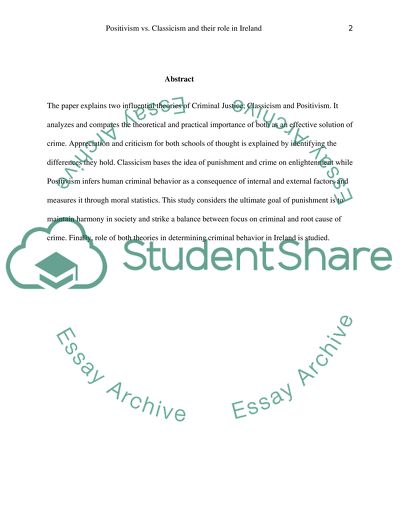Cite this document
(“Compare and contrast positivism and classicism and outline thier role Essay”, n.d.)
Compare and contrast positivism and classicism and outline thier role Essay. Retrieved from https://studentshare.org/miscellaneous/1558432-compare-and-contrast-positivism-and-classicism-and-outline-thier-role-as-an-explanation-for-criminal-behaviour-in-ireland
Compare and contrast positivism and classicism and outline thier role Essay. Retrieved from https://studentshare.org/miscellaneous/1558432-compare-and-contrast-positivism-and-classicism-and-outline-thier-role-as-an-explanation-for-criminal-behaviour-in-ireland
(Compare and Contrast Positivism and Classicism and Outline Thier Role Essay)
Compare and Contrast Positivism and Classicism and Outline Thier Role Essay. https://studentshare.org/miscellaneous/1558432-compare-and-contrast-positivism-and-classicism-and-outline-thier-role-as-an-explanation-for-criminal-behaviour-in-ireland.
Compare and Contrast Positivism and Classicism and Outline Thier Role Essay. https://studentshare.org/miscellaneous/1558432-compare-and-contrast-positivism-and-classicism-and-outline-thier-role-as-an-explanation-for-criminal-behaviour-in-ireland.
“Compare and Contrast Positivism and Classicism and Outline Thier Role Essay”, n.d. https://studentshare.org/miscellaneous/1558432-compare-and-contrast-positivism-and-classicism-and-outline-thier-role-as-an-explanation-for-criminal-behaviour-in-ireland.


